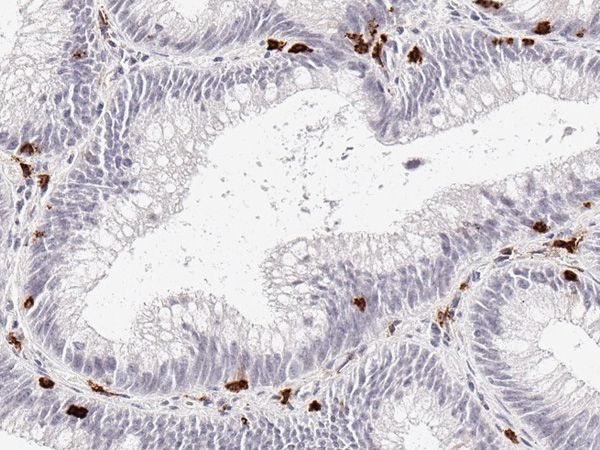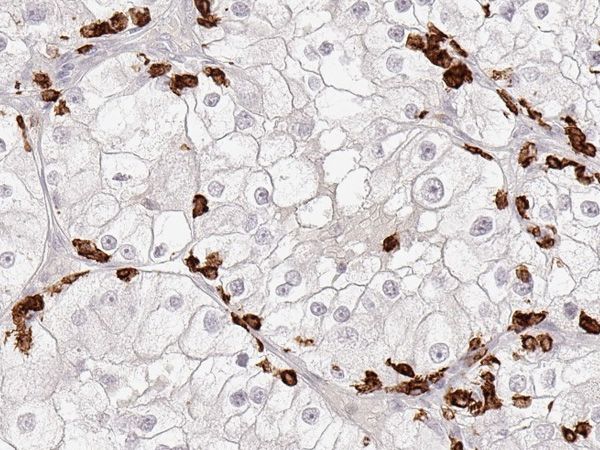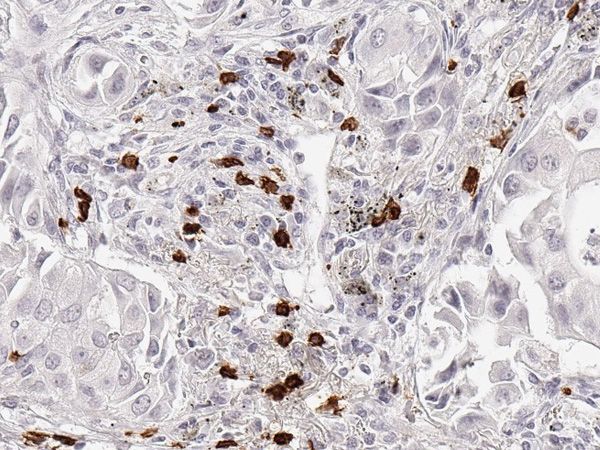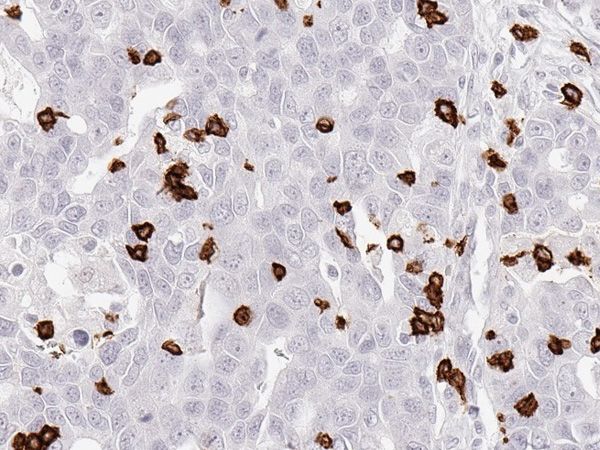Anti-CD8 (Hu) aus Maus (TC8) – unkonj.




-
Übersicht
Artikelnummer DIA-TC8 Spezifität Spezies-Reaktivität Immunogen Wirtsspezies Isotyp Klon Klonalität (Mono-/Polyklonal) Anwendung Immunhistochemie (IHC), Immunhistochemie (Paraffingewebe), Western Blot
Konjugation Verdünnung Format 0,05% NaN3, 2% BSA, gereinigter Antikörper (aus Kulturüberstand), in PBS (pH 7,4), Lyophilisat
Produktlinie / Thema Zweckbestimmung Temperatur - Lagerung Temperatur - Transport Suchcode Hersteller / Marke Uniprot_ID Gene_ID Alias CD8A, Cluster of Differentiation 8, Leu2, Leu2 T lymphocyte antigen, MAL, OKT8 T cell antigen, T cell antigen Leu2, T cell co receptor, T-cell surface glycoprotein CD8 alpha chain, T-lymphocyte differentiation antigen T8/Leu-2, T8 T cell antigen
- Datenblätter und Downloads
-
Weitere Produktinformationen
CD8+ T cells play a central role for the killing of cancer cells. They have the ability to infiltrate different human tumors and are engaged in the development of a specific tumor microenvironment. Cancer cells have developed mechanisms to successfully evade the antitumor immune response by generating inhibitory signals through upregulation of the expression of immunosuppressive components. Effective blockade of this interaction is considered as a major factor in the development of cancer immunotherapies. Moreover, preexisting CD8+ T cells seem to predict the efficacy of such immune checkpoint therapies.
The T-cell receptor (TCR) recognizes specific antigenic peptides on the surface of cancer and other target cells presented by HLA-I/b2m complexes. Binding to TCR induces a signaling transduction cascade, leading to execution of cytotoxic T lymphocyte (CTL) functions. While CD8+ T cells are directly involved in antitumor cytotoxic responses, the involvement of CD4+ T cells is more indirect, e.g. by their help in priming of CD8+ T cells.
In contrast, inhibitory T-cell receptors such as PD-1, CTLA-4 and TIGIT are activated by the immunosuppressive tumor microenvironment with the aim to inactivate tumor-infiltrating lymphocytes (TILs). The most effective current cancer immunotherapies include immune checkpoint inhibition ICI and block T-cell inhibitory receptors. Moreover, effective blockade immunotherapy appears to be associated with the presence of CD8+ T cells.Clone TC8 has been developed specifically for the immunohistochemical (IHC) detection of CD8 in routine FFPE human tissue specimen. TC8 has been validated for the identification of CD8 positive tumor infiltrating T cells (TILs) with the aim to allow an unequaled specific detection of CD8 in the tumor microenvironment. IHC application of monoclonal antibody TC8 may provide valuable information for clinical research and potential therapeutic interventions targeting the tumor immunology checkpoint.
-
Bilder

CD8_Colon_adenoma 
CD8_Kidney-cancer 
CD8_Lung-Adenocarcinoma 
CD8_Ovary-carcinoma
